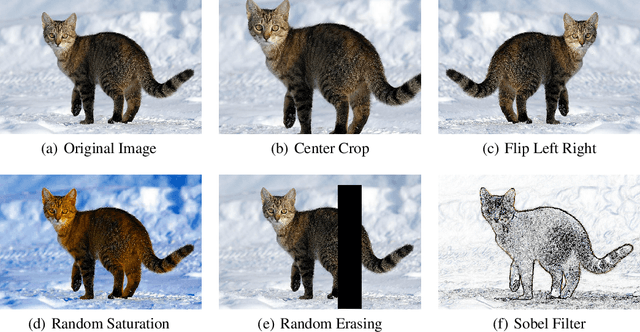Dhruva Kashyap
DO-EM: Density Operator Expectation Maximization
Jul 30, 2025



Abstract:Density operators, quantum generalizations of probability distributions, are gaining prominence in machine learning due to their foundational role in quantum computing. Generative modeling based on density operator models (\textbf{DOMs}) is an emerging field, but existing training algorithms -- such as those for the Quantum Boltzmann Machine -- do not scale to real-world data, such as the MNIST dataset. The Expectation-Maximization algorithm has played a fundamental role in enabling scalable training of probabilistic latent variable models on real-world datasets. \textit{In this paper, we develop an Expectation-Maximization framework to learn latent variable models defined through \textbf{DOMs} on classical hardware, with resources comparable to those used for probabilistic models, while scaling to real-world data.} However, designing such an algorithm is nontrivial due to the absence of a well-defined quantum analogue to conditional probability, which complicates the Expectation step. To overcome this, we reformulate the Expectation step as a quantum information projection (QIP) problem and show that the Petz Recovery Map provides a solution under sufficient conditions. Using this formulation, we introduce the Density Operator Expectation Maximization (DO-EM) algorithm -- an iterative Minorant-Maximization procedure that optimizes a quantum evidence lower bound. We show that the \textbf{DO-EM} algorithm ensures non-decreasing log-likelihood across iterations for a broad class of models. Finally, we present Quantum Interleaved Deep Boltzmann Machines (\textbf{QiDBMs}), a \textbf{DOM} that can be trained with the same resources as a DBM. When trained with \textbf{DO-EM} under Contrastive Divergence, a \textbf{QiDBM} outperforms larger classical DBMs in image generation on the MNIST dataset, achieving a 40--60\% reduction in the Fr\'echet Inception Distance.
Robustness to Augmentations as a Generalization metric
Jan 16, 2021

Abstract:Generalization is the ability of a model to predict on unseen domains and is a fundamental task in machine learning. Several generalization bounds, both theoretical and empirical have been proposed but they do not provide tight bounds .In this work, we propose a simple yet effective method to predict the generalization performance of a model by using the concept that models that are robust to augmentations are more generalizable than those which are not. We experiment with several augmentations and composition of augmentations to check the generalization capacity of a model. We also provide a detailed motivation behind the proposed method. The proposed generalization metric is calculated based on the change in the output of the model after augmenting the input. The proposed method was the first runner up solution for the NeurIPS competition on Predicting Generalization in Deep Learning.
 Add to Chrome
Add to Chrome Add to Firefox
Add to Firefox Add to Edge
Add to Edge